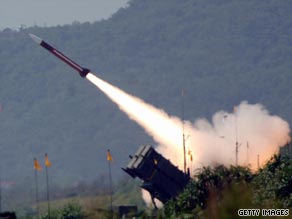Der Spiegel recently sat down for an interview with Ahmet Davutoglu, Turkey's new foreign minister and the chief architect of the country's reengagement with its Middle Eastern neighbors. A large part of the interview covers the recent trouble in Iran, and gives a good insight into Davutoglu's thinking about what's taking place there and how Turkey should approach it. From the interview (the full version, which is worth reading, is
here):
SPIEGEL: Minister Davutoglu, Iran, Turkey's neighbor, is in the midst of the worst unrest since the Islamic Revolution 30 years ago. After having served for many years as Prime Minister Recep Tayyip Erdogan's foreign policy advisor, you are very familiar with Iran. What is your assessment of the situation?
Davutoglu: Turkey and Iran share a very long common history. We know our neighbor -- and have for more than 1,000 years. No one should underestimate or misunderstand this proud country. The political atmosphere there is incredibly dynamic, as is Iranian society. It is very complex and multifaceted.
SPIEGEL: Did you expect political developments in Iran to take such an explosive turn?
Davutoglu: Yes, absolutely. As a country with very close relations with Iran, we knew how dynamic both the society and the political culture there are. I noticed two particularities in this election. First, there was the extremely animated and fiercely contested campaign phase, and then there was the high election turnout. This led to the emergence of very different interpretations of results after the election. I think that we should take this as a sign that the political process in Iran is very healthy.
SPIEGEL: But it is precisely the result that all of the president's challengers are calling into question. According to the opposition, this election was seriously manipulated.
Davutoglu: We must leave the discussion of the issue to the Iranians. We cannot intervene from the outside.
SPIEGEL: Is there not much more at stake here, namely a struggle for democracy?
Davutoglu: That may be true, in the sense that the Iranian masses want to be heard. The people are unwilling to leave politics solely to the state, and they are very passionate. But I am not prepared to pass judgment as to whether or not the elections were properly carried out.
SPIEGEL: Have you congratulated Iranian President Ahmadinejad on his victory?
Davutoglu: Of course. This is standard procedure between two nations with friendly relations.
SPIEGEL: Perhaps you will have to congratulate a new Iranian president once again in the coming weeks.
Davutoglu: In any case, we will respect the outcome of the political conflict in Iran.
SPIEGEL: Then perhaps you could help us to better understand your neighbor Iran. Have we in the West underestimated the "green movement" of reformist candidate Mir Hossein Mousavi?
Davutoglu: It isn't just about Mousavi. I believe that the West generally has a simplified view of the situation. The West is still dominated by a Cold War-like logic when it comes to Iran. This results in a black-and-white image of the country. The true picture is far more complex. Iran also has a system of checks and balances, and it has more than one center of power. And there are various competing movements and individuals. This "human factor" in Iranian politics is often overlooked in the West.
SPIEGEL: Let's talk about President Ahmadinejad, who visited Turkey in the summer of 2008. Doesn't the alleged victory of hardliner Ahmadinejad have to be described as a political step backward for the peace process in the Middle East?
Davutoglu: I don't believe that the ideological division into so-called hardliners or moderates is helpful. As far as relations with other countries are concerned, it is more important to look at a politician's pragmatism. It is in the interest of all parties in the Middle East that we achieve peace and stability, and that we transform our region into a shared zone of prosperity.
SPIEGEL: But Mousavi's "green movement" already enjoys significantly more sympathy abroad than the Ahmadinejad camp.
Davutoglu: Do you think this political color theory is really useful? Let's not talk about colors. The Iranians are proud people. All of us want to see them bring their own dispute to an end. We hope that these developments will end positively, in line with a participatory political culture.
Davutoglu's foreign policy has, for the most part, been highly successful, which would seem to indicate that his judgement regarding Turkey's neighbors has been perceptive. But I was struck by his statement that he sees the emergence of two very different interpretations of the results of the recent Iranian elections as a "sign that the political process in Iran is very healthy." Clearly, based on the growing indications that the election was riddled with fraud and the massive number of Iranians who have decided to protest the regime, the political process in Iran is far from "healthy."
The interview gives me a clearer sense of what Turkey's position is regarding what's happening in Iran (very cautious, and I can see the logic in that). What I'm still trying to figure out is what role Turkey, as a regional actor, sees for itself regarding the unfolding crisis there.



